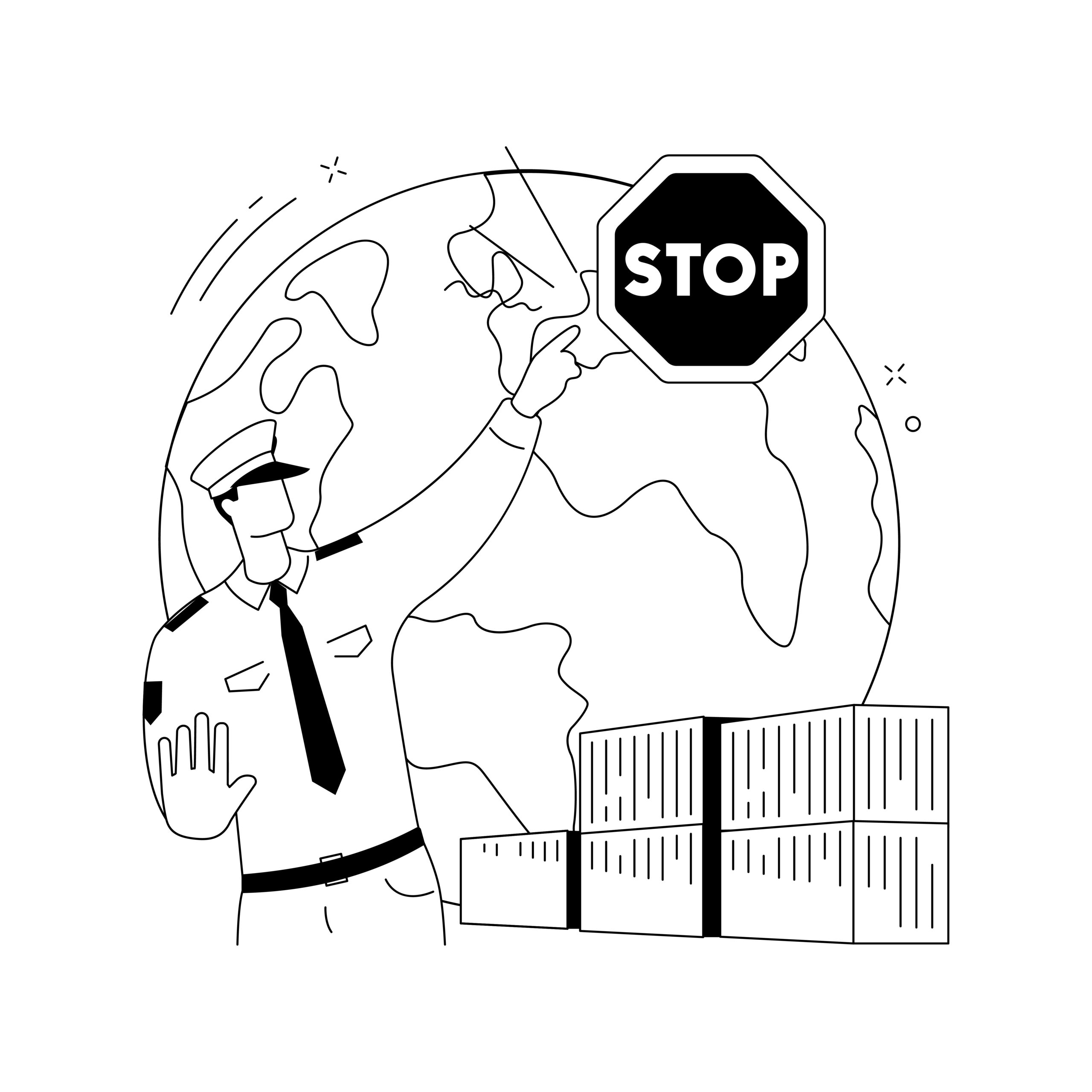Sanctions are punitive measures, while embargoes are restrictions on trade or commerce, often imposed for political or economic reasons.
TL;DR Sanctions Vs. Embargoes
Sanctions can take various forms such as asset freezes, travel bans, arms embargoes, and diplomatic isolation. They are often imposed by individual countries or groups of countries acting collectively. The United Nations also plays a significant role in imposing sanctions through resolutions adopted by its member states.
Embargoes predominantly focus on restricting trade activities and may include bans on imports and exports of goods and services to/from the target country. These measures can have far-reaching impacts not only on the targeted nation but also its trading partners.
Definition of sanctions
Sanctions, in the realm of international relations, refer to measures taken by one country or a group of countries against another as a form of punishment or coercion. These measures are typically imposed due to perceived violations of international law, human rights abuses, or threats to regional stability. Sanctions can come in various forms such as trade restrictions, financial penalties, travel bans, and arms embargoes.
The primary objective behind imposing sanctions is to exert pressure on the target nation or entity and compel them to change their behavior. By limiting trade and cutting off economic ties with the targeted country, sanctions aim to inflict economic hardships and encourage compliance with international norms.
It’s important to note that sanctions are not always unilateral actions; they can be multilateral as well. In some cases, multiple countries may band together under the umbrella of an international organization like the United Nations to impose collective sanctions on a particular nation.
Sanctions can have far-reaching consequences for both the target country and those implementing them. The intended outcomes may include diplomatic negotiations aimed at resolving conflicts peacefully or causing enough economic strain on the targeted regime that it is forced into political reforms.
Definition of embargoes

An embargo is a form of trade restriction imposed by one country on another. It involves the complete prohibition or restriction of certain goods, services, or financial transactions with a target country. The purpose of an embargo is to exert economic and political pressure on the targeted nation to change its behavior.
Embargoes can be implemented for various reasons, such as human rights violations, national security concerns, nuclear proliferation, or support for terrorism. They are often used as a diplomatic tool to express disapproval or disagreement with a country’s actions.
When an embargo is in place, it typically restricts trade not only between the imposing nation and the target country but also affects third-party countries that have business dealings with both parties. This can have significant consequences for global commerce and can disrupt supply chains across multiple industries.
Unlike sanctions which may involve targeted restrictions against specific individuals or entities, embargoes generally have broader implications affecting entire countries. They aim to isolate and weaken the targeted nation economically until it complies with demands from the imposing country or international community.
Embargoes are powerful tools employed by governments to influence foreign policy outcomes through economic means rather than military force. By restricting trade flows and isolating nations diplomatically, embargoes seek to bring about desired changes in behavior without resorting to more drastic measures
Sanctions Vs. Embargoes – Key differences
| Aspect | Sanctions | Embargoes |
|---|---|---|
| Definition | Penalties or restrictions applied for various reasons, including political, economic, or human rights concerns. | Trade or commerce restrictions imposed on specific goods, services, or countries, often for political reasons. |
| Scope | Can encompass a wide range of measures, including financial restrictions, travel bans, and arms embargoes. | Primarily focus on limiting or prohibiting trade, often targeting specific countries or entities. |
| Targets | Can target individuals, entities, or even entire countries, depending on the objective. | Mainly target trade with specific countries or specific types of goods or services. |
| Purpose | Can serve various purposes, including diplomacy, deterrence, and addressing international issues. | Primarily used for political, diplomatic, or national security objectives. |
| Examples | Asset freezes, visa restrictions, arms embargoes, and economic sanctions. | Bans on trade in specific commodities (e.g., oil, weapons) with certain countries (e.g., Iran, North Korea). |
| Application | Applied unilaterally or multilaterally by one or more countries or international organizations. | Typically imposed by a single country or a coalition of countries against a specific target. |
Types of sanctions and embargoes
Types of Sanctions
- Economic Sanctions: These sanctions target a country’s economy by restricting trade, investment, or financial transactions. They can include asset freezes, trade bans, and restrictions on foreign aid.
- Financial Sanctions: These sanctions freeze the assets or accounts of individuals, entities, or governments, preventing them from accessing or using financial resources.
- Arms Embargo: An arms embargo prohibits the sale or transfer of military weapons and equipment to a specific country or group, often to prevent conflicts or human rights abuses.
- Travel Bans: Travel bans restrict the entry or exit of individuals from a sanctioned country. This can target government officials, individuals associated with human rights abuses, or others.
- Diplomatic Sanctions: Diplomatic sanctions can involve the expulsion of diplomats, the closure of embassies, or the downgrading of diplomatic relations between countries.
- Human Rights Sanctions: These sanctions target individuals or entities involved in severe human rights abuses, such as genocide, torture, or human trafficking.
Types of Embargoes
- Arms Embargo: Similar to the arms embargo under sanctions, this restricts the sale or transfer of weapons and military equipment to a specific country or group.
- Trade Embargo: A trade embargo imposes restrictions on the import and export of goods and services between countries, often for political or economic reasons.
- Technology Embargo: Technology embargoes limit the transfer of advanced technology, such as dual-use technologies with military applications, to specific countries.
- Oil Embargo: Oil embargoes target the export or import of crude oil or petroleum products and can have significant economic impacts.
- Cultural and Sports Embargo: These embargoes may restrict cultural exchanges, participation in international sports events, or the hosting of such events in a sanctioned country.
- Travel Embargo: A travel embargo discourages or bans travel to or from a specific country due to political or health-related concerns, such as during a pandemic.
Image Credits
Featured Image By – National Archives at College Park, Public domain, via Wikimedia Commons
Image 1 By – vectorjuice on Freepik








